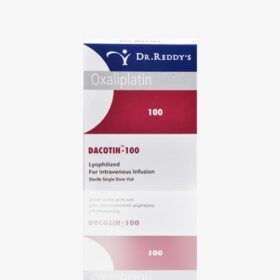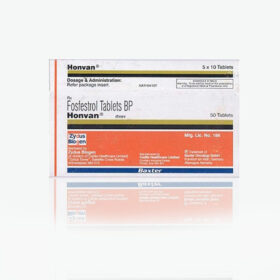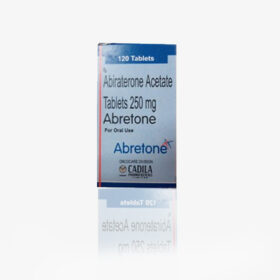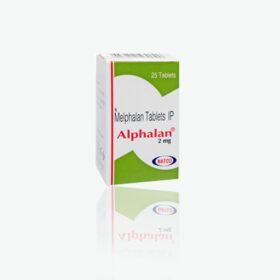- Your cart is empty
- Continue Shopping

Product
Introduction
Abiraterone is a medication that has revolutionized the treatment landscape for advanced prostate cancer. As an androgen biosynthesis inhibitor, Abiraterone specifically targets the hormonal pathways that fuel the progression of prostate cancer. This description aims to provide insights into the characteristics, clinical applications, and considerations associated with Abiraterone.
Mechanism of Action
Abiraterone acts by inhibiting the enzyme CYP17A1, which plays a crucial role in the synthesis of androgens (male hormones) within the testes, adrenal glands, and tumor tissues. By blocking androgen production at multiple sources, Abiraterone reduces the levels of testosterone and other androgens that drive the growth of prostate cancer cells.
Clinical Applications
- Metastatic Prostate Cancer: Abiraterone is primarily prescribed for the treatment of metastatic castration-resistant prostate cancer (mCRPC), where the cancer has spread beyond the prostate and is no longer responsive to hormonal therapies like androgen deprivation therapy (ADT).
- Pre-metastatic Prostate Cancer: In some cases, Abiraterone is used in combination with prednisone for the treatment of high-risk, castration-sensitive prostate cancer before it has metastasized.
Dosage Forms and Strengths
Abiraterone is commonly available in oral tablet form. The standard dosage strength is 250mg per tablet. It is typically administered once a day in combination with prednisone or prednisolone.
Characteristics and Considerations
- Combination Therapy: Abiraterone is often used in combination with prednisone or prednisolone to manage side effects related to increased mineralocorticoid levels associated with CYP17A1 inhibition.
- Hormonal Impact: Abiraterone significantly reduces the levels of androgens in the body, impacting the hormonal milieu and contributing to the suppression of prostate cancer growth.
- Monitoring: Regular monitoring of patients undergoing Abiraterone therapy is essential to assess treatment response, manage potential side effects, and adjust treatment plans as needed.
- Cardiovascular Risk: Some studies suggest a potential association between Abiraterone use and an increased risk of cardiovascular events. Healthcare providers consider cardiovascular risk factors when prescribing Abiraterone.
- Adverse Effects: Common side effects of Abiraterone may include fatigue, joint pain, hypertension, fluid retention, and electrolyte imbalances. Adverse reactions are generally manageable with appropriate monitoring and intervention.
Conclusion
Abiraterone has emerged as a significant advancement in the treatment of advanced prostate cancer, offering a targeted approach to disrupting hormonal pathways crucial for cancer progression. Its role in both metastatic castration-resistant and castration-sensitive prostate cancer has expanded treatment options and improved outcomes for many patients. The use of Abiraterone requires careful consideration of individual health factors, monitoring for potential side effects, and collaboration between patients and healthcare providers to optimize treatment efficacy while maintaining quality of life. As with any cancer therapy, discussions with healthcare professionals are crucial for tailored treatment plans and informed decision-making.














Reviews
There are no reviews yet.